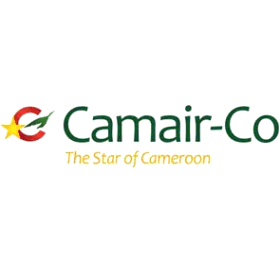The
national carrier of Cameroon, Camair-Co,
has taken a significant step in its ongoing fleet renewal strategy by
welcoming a Boeing 737-800 on wetlease from
Czech operator Smartwings. The aircraft, which arrived in Douala on
September 4, 2025, is set to enter service immediately, marking a
pivotal moment in the airline’s efforts to stabilize and expand its
network amidst ongoing operational challenges
.
This latest addition is
not just another aircraft; it represents a strategic move to reinforce
Camair-Co’s presence in both domestic and regional
markets. The 21-year-old Boeing 737-800, sourced through
an ACMI (Aircraft, Crew, Maintenance, Insurance) agreement, is the
second such collaboration between Camair-Co and Smartwings this year.
This partnership underscores the growing reliance on flexible leasing
solutions as African carriers navigate persistent fleet constraints and
evolving market demands.
Camair-Co’s decision to
bolster its fleet through wetleasing is a direct response to the ongoing
immobilization of several of its own aircraft. The airline has faced
significant hurdles in maintaining consistent operations due to
technical and financial setbacks, a scenario not uncommon among African
flag carriers. By leveraging ACMI agreements, Camair-Co ensures
uninterrupted service, safeguarding its market share and maintaining
vital air links within Cameroon and across the region.
Beyond
Smartwings, Camair-Co has also turned to other regional partners to
supplement its capacity. Notably, the airline has engaged with
NG Eagle from Nigeria and
CemAir (Pty) Ltd from South Africa, both of
which have provided additional aircraft under similar wetlease
arrangements. These partnerships highlight a broader trend among African
airlines: the pursuit of operational resilience through cross-border
collaboration and resource sharing.
The timing of this
fleet expansion is particularly noteworthy. With Cameroon approaching
its general elections, the demand for reliable air transport is expected
to surge. Camair-Co’s proactive approach in securing extra capacity
positions it to meet this anticipated uptick in passenger traffic,
ensuring that both citizens and officials can travel efficiently during
this critical period. The airline’s management has hinted at the
possibility of further augmenting its fleet should demand continue to
rise, signaling a readiness to adapt to the dynamic needs of the
market.
For the wider African aviation sector,
Camair-Co’s strategy offers valuable insights. The use of wetleased
aircraft provides immediate operational relief, allowing airlines to
maintain schedules and uphold service standards even when their own
fleets are grounded. This model also facilitates the introduction of
newer or more efficient aircraft types without the long-term financial
commitment of outright purchases or traditional dry leases.
Moreover,
the integration of the Boeing 737-800 into Camair-Co’s operations
brings several advantages. The aircraft is renowned for its reliability,
fuel efficiency, and versatility, making it well-suited for the varied
route profiles typical of African carriers. Its deployment is expected
to enhance the passenger experience, offering improved comfort and
punctuality on both short-haul and medium-haul flights.
From
a business perspective, the move reflects a broader shift in the
African aviation landscape. Airlines across the continent are
increasingly embracing innovative leasing solutions to overcome capital
constraints and fleet shortages. This trend is reshaping the competitive
environment, enabling carriers to respond swiftly to market
fluctuations and seize new growth opportunities.
For
Camair-Co, the partnership with Smartwings and other ACMI providers is
more than a stopgap measure; it is a cornerstone of a larger
transformation agenda. The airline is actively working to restore its
reputation and regain the confidence of travelers, government
stakeholders, and industry partners. By ensuring consistent service
delivery, Camair-Co aims to reestablish itself as a reliable connector
within Central Africa and beyond.
The implications for
the African travel industry are significant. As airlines like Camair-Co
demonstrate the viability of wetleasing as a tool for fleet management,
other carriers may be encouraged to adopt similar strategies. This
could lead to increased intra-African cooperation, greater operational
flexibility, and a more resilient aviation sector overall.
Looking
ahead, the success of Camair-Co’s wetlease initiatives will likely
influence future investment decisions, both within Cameroon and across
the region. As the airline continues to navigate the complexities of the
post-pandemic recovery, its ability to adapt and innovate will be
closely watched by industry observers and competitors alike.
In
summary, Camair-Co’s acquisition of a wetleased Boeing 737-800 from
Smartwings marks a decisive step in its journey toward operational
stability and growth. By embracing flexible leasing solutions and
forging strategic partnerships, the airline is not only addressing
immediate challenges but also laying the groundwork for a more robust
and competitive future. For Africa’s aviation professionals, this
development serves as a compelling example of how adaptability and
collaboration can drive progress in a rapidly changing
industry.
